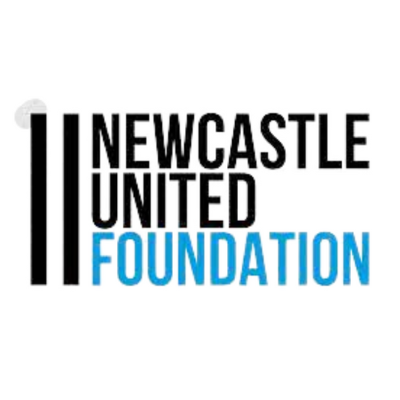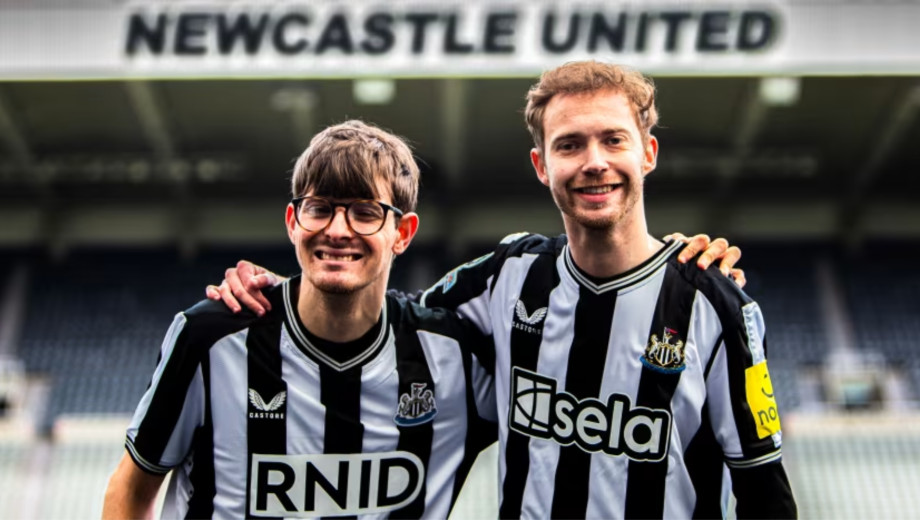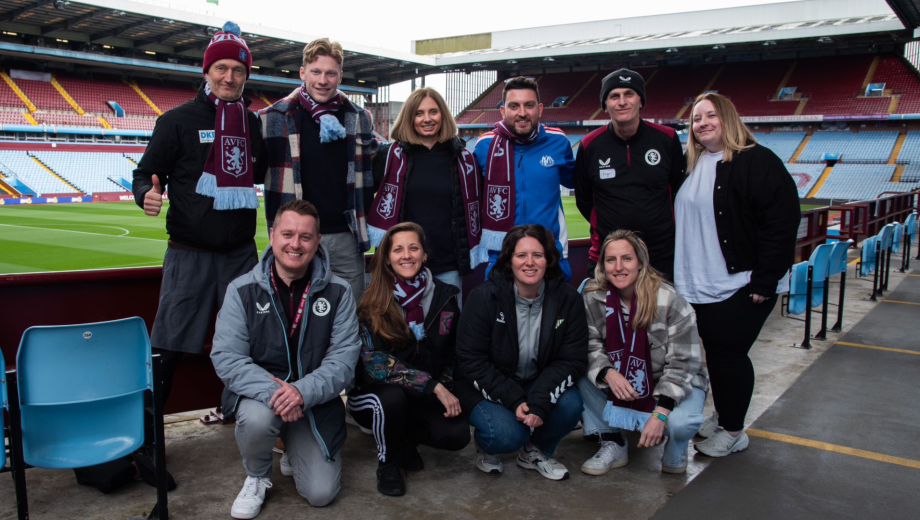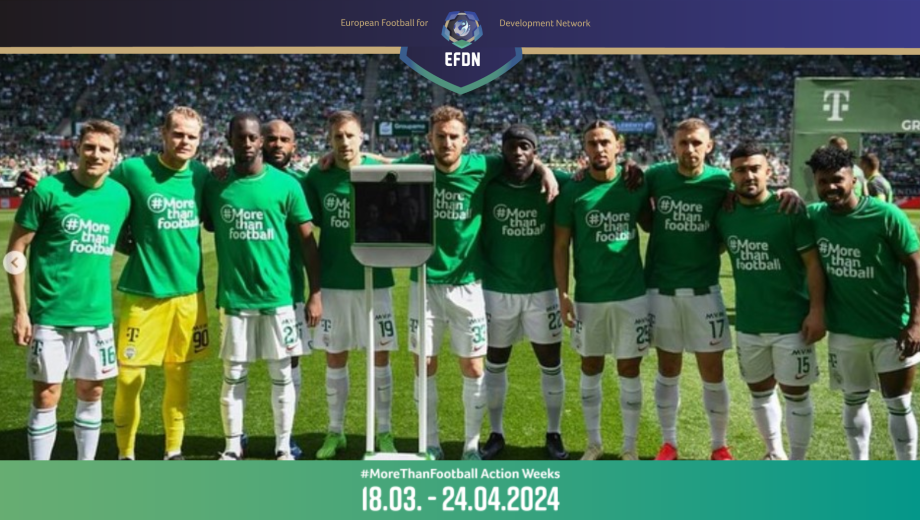Interview with Rafael Muela Pastor about Forever Green initiatives
EFDN has conducted an interview with Rafael Muela Pastor, which has been published in the SDG Striker Magazine. The General Manager of the Real Betis Balompie Foundation talks about their Forever Green project and the importance of sustainability awareness within every club and among all fans.
The Fundación Real Betis Balompié is specialised in environmental and sustainability issues, sports, youth employment, and social inclusion of vulnerable groups of people, within the framework of Corporate Social Responsibility. EFND has conducted this interview with the Spanish football club in order to share their experience related to sustainability including the collaboration with Forever Green.
Please could you introduce the Real Betis Balompie and its Forever Green initiative?
Real Betis Balompié was founded in 1907. The Club was granted the honorary title ‘Real’ in 1914 by King Alfonso XIII. The team’s biggest honors are a League championship, won in 1934/35 and three Copa del Rey victories, in 1977, 2005, and this season. Real Betis was the first Andalusian team to play in the Spanish first division. Betis’ home stadium is the Benito Villamarín Stadium, which is owned by the club and can seat up to 60,271 fans. Forever Green is an open platform for partners who want to show the world what they are doing today for the future of our planet. It uses the power of the most popular sport on the planet to help save it and it is to make the millions of fans of today our allies to fight against climate change tomorrow.
Could you present the Forever Green model and some of its current actions?
As a professional football club belonging to one of the most followed leagues in the world, we have the power to be a referent and speaker to society. That is why we decided to have Forever Green open to any company that would like to be part of this ambition, so we can create global awareness. This is also
thanks to the club being a multidisciplinary entity together with passionate fans, committed, and involved with the club and all the actions we are developing. The Project is divided into five big Areas:
- Mobility
- Climate Change
- Nature protection
- Recycling
- Sustainable club
What is your policy to strive for carbon neutrality? Each year you register your carbon results, what is the status of your policy and its improvements?
Since the launch of Forever Green, eco criteria for the selection of suppliers have been implemented within the Club and sustainable mobility has been promoted among employees, through the availability
of a fleet of electric scooters and the creation of incentives for bicycle transport. This action will be extended to Real Betis Balompié fans when the fans can return to the Benito Villamarín Stadium. In addition, in all the Club facilities, containers have been installed for the recycling of electrical and electronic equipment, glass and plastics.
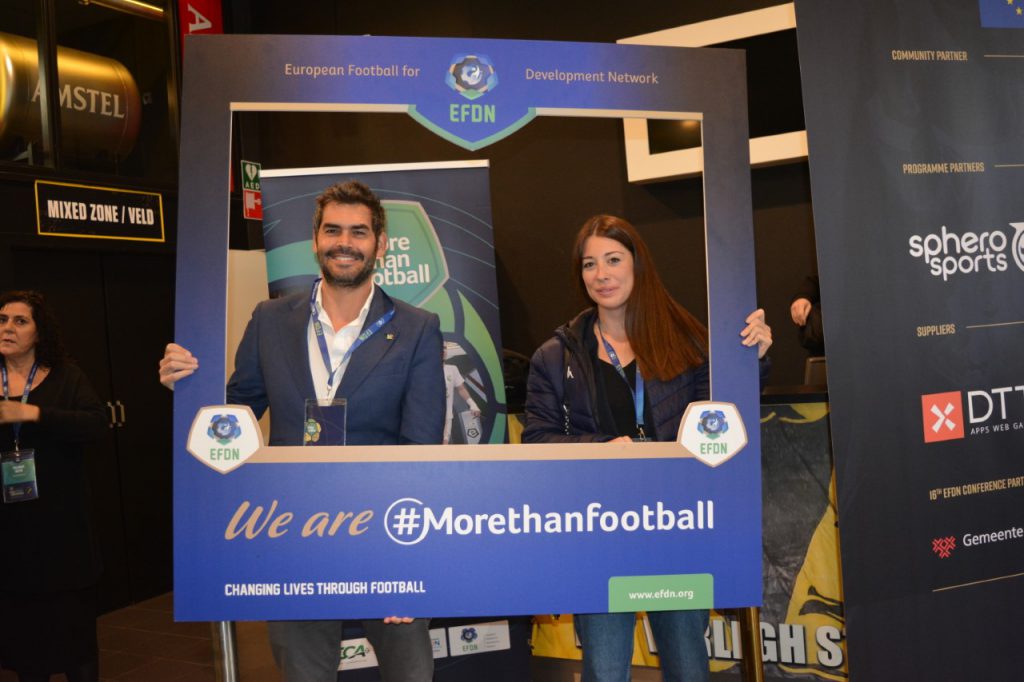
The platform Forever Green is an innovative way to create collaboration between people. How many people are connected to this platform and what type of people are they?
More than 50 organizations have joined the platform, including companies, NGOs, foundations, sports, and cultural events, and institutions, like Kipin energy, Arrebola, Bureuau Veritas, Ecoterrae, Play Station as
companies; National Paddle tournament, Futsal National League, and La Liga as sports entities; OK Planet, Ecovidrio or Ecolec Foundation as non-lucrative organizations or green initiatives as The Climate Pledge by Amazon or Climate Neutral Now by United Nations. Also, large organizations such as LG, who are doing reforestation with high technology items. The Platform Forever Green platform can be used together with its member to develop projects or call to action. The measurement, reduction and compensation of the carbon footprint is also among the key premises of Forever Green. The Club has
partnered with the Andalusian consultancy Ecoterrae, which provides the appropriate technical advice for this mission. Additionally, every year we compensate for our carbon footprint because we think that there is no planet B. And with no planet, there is no football and there is no Betis. That is a good reason to work for.
Do you have ambassadors inside your club who support Forever Green?
A ‘Forever Green’ commission has also been established, made up of representatives of all the Club’s departments and created to establish a transversal green philosophy in all areas of Real Betis Balompié. Within this philosophy, we find the “Eco-employee” campaign, an internal action with small and big
eco-gestures from the workforce. The objective is to raise awareness and modify day-to-day habits to reduce energy consumption and carbon footprint. This campaign is generating very positive effects and creating “green” habits among employees.
What is your advice for a club that would like to start a sustainable revolution? What would the starting point be?
It is crucial to start raising awareness inside the Club, especially with the board of directors. It financial terms, sustainability will a key indicator for investors and sponsorships, and beyond, for the most important client for every Club, their fans! According to several studies, Generation Z is highly committed
to the planet’s emergency and will make decisions accordingly, taking as a reference those organizations who are doing something to fight against climate change.
Find here the interview as published by SDG Striker. EFDN is in relation to SDG Striker part of a consortium, together with three Football Associations, that encourages sustainable initiatives.
SDG Striker is a European co-funded project under the Erasmus+ programme that aims to implement and communicate the Sustainable Development Goals (SDG) for improving good governance in grassroots sports clubs and organizations resulting in positive impacts on the communities around them.
SDG STRIKER seeks to increase the organizational capacity for Good Governance in grassroots
football. Therefore, the clubs should be assisted in the implementation and communication
of the SDGs through ad hoc action at the local level so they can align themselves with European,
national, and local public policy on SDGs. In the project, there are three pilots, in Scotland, Norway and Portugal addressing different topics on sustainability and therefore also different SDGs.

DFB – Football United Against Racism
DFB Foundations Programmes
